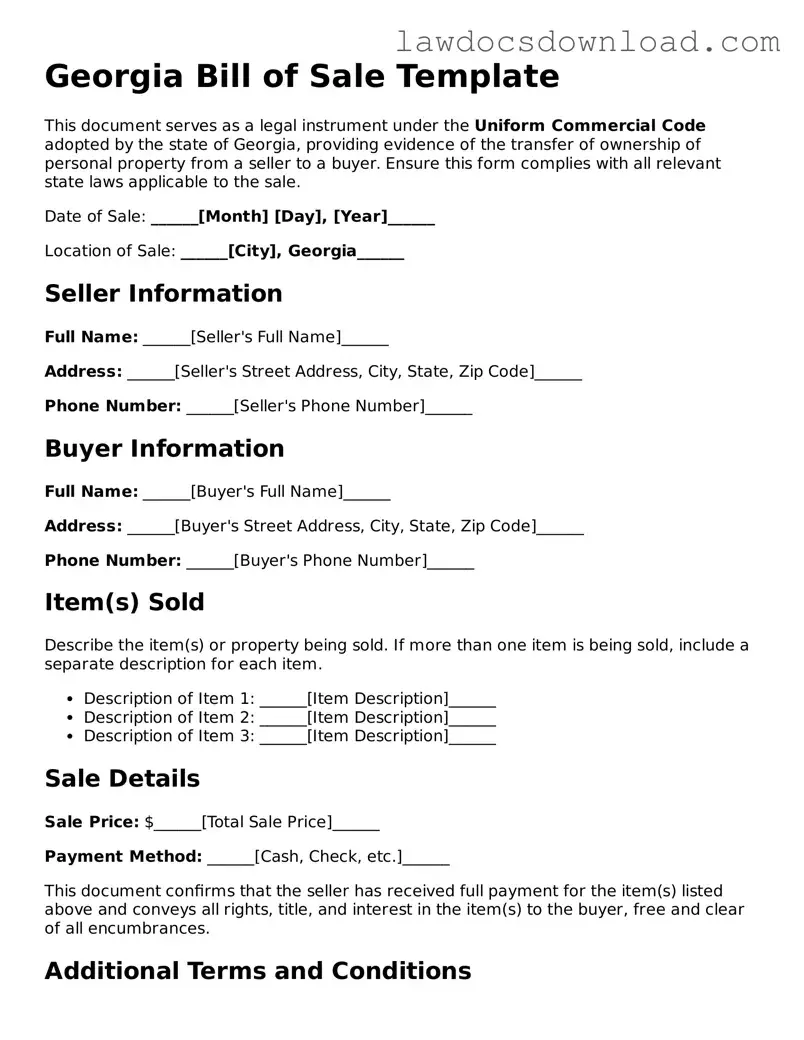Legal Georgia Bill of Sale Form
A Georgia Bill of Sale form serves as an official document that records the transfer of ownership of personal property from one party to another. This form is crucial in providing legal proof of the transaction, detailing the item sold, the sale price, and the parties involved. It plays a significant role in both personal record-keeping and compliance with state regulations.
Launch Bill of Sale Editor Here

Legal Georgia Bill of Sale Form
Launch Bill of Sale Editor Here

Launch Bill of Sale Editor Here
or
Free Bill of Sale
Get this form done in minutes
Complete your Bill of Sale online and download the final PDF.